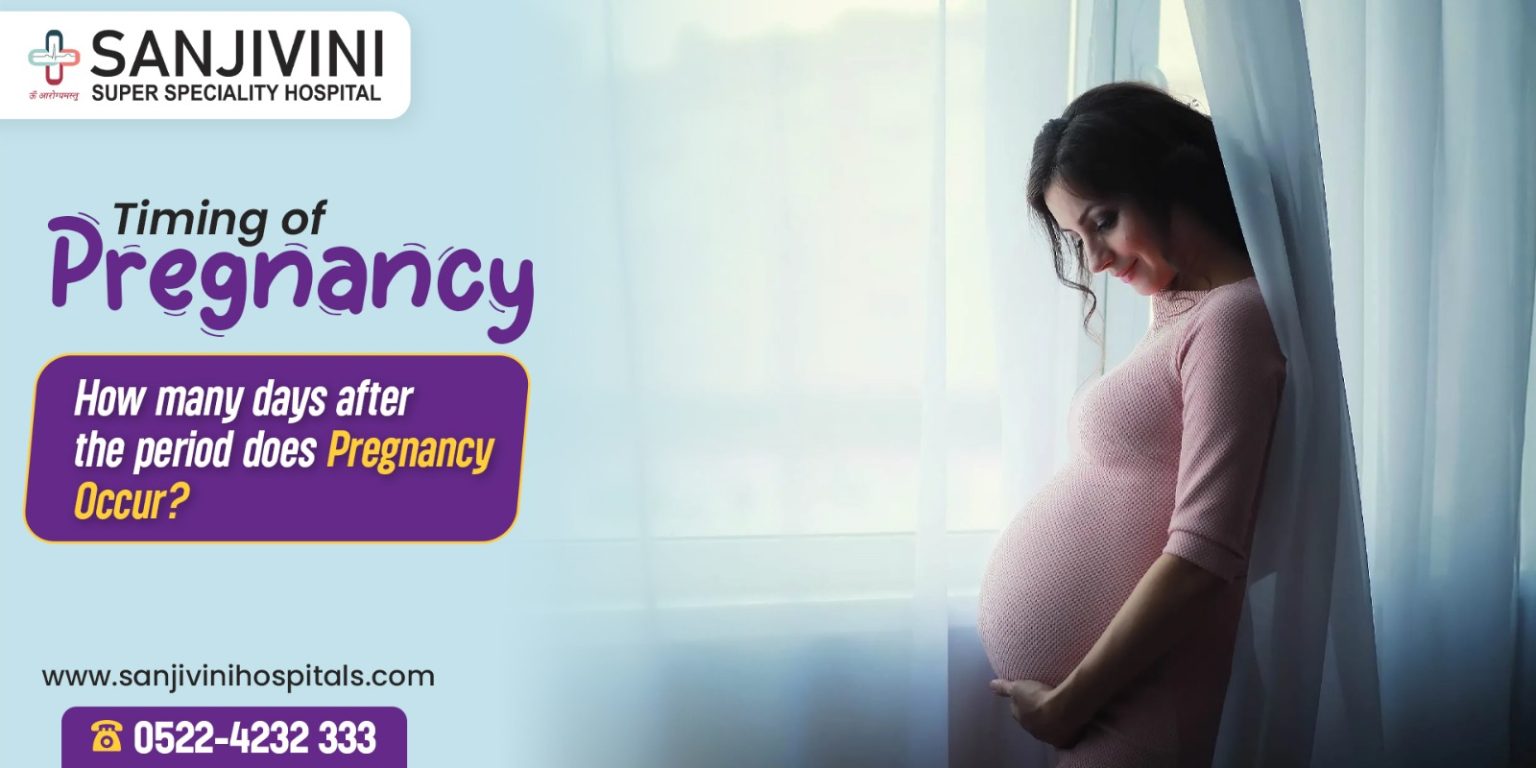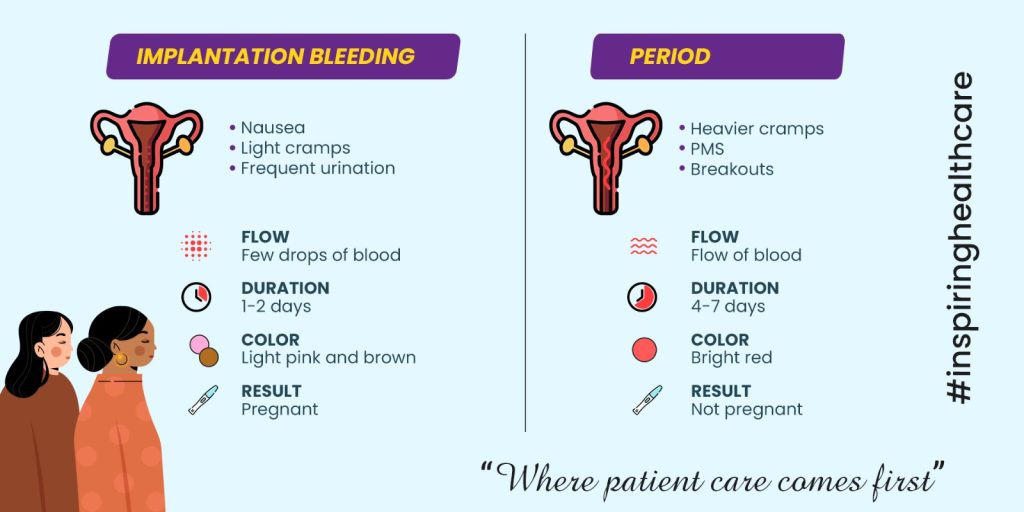Timing of Pregnancy: How many days after the period does pregnancy occur?

Understanding when pregnancy can occur about your menstrual cycle is crucial for family planning. Your menstrual cycle, which occurs roughly every month, involves several stages, one of which is ovulation – the release of an egg from your ovary. Knowing when ovulation happens and how long an egg can survive after release can help you determine the best time to try to conceive. Let’s explore the timing of pregnancy in simple terms, so you can make informed decisions about your reproductive health.
Ovulation and Fertility
Ovulation and Its Timing
Ovulation marks the release of a mature egg from the ovary, making it ready for fertilization. The timing of ovulation is crucial for conception. Typically, ovulation occurs about 14 days before a woman’s period begins. Here’s a breakdown:
- In a 28-day cycle, ovulation usually happens around day 14, with the peak fertile days being days 12, 13, and 14.
- In a 35-day cycle, ovulation occurs around day 21, and the most fertile days are days 19, 20, and 21.
- In shorter cycles, like 21 days, ovulation takes place around day 7, and the prime fertile days are days 5, 6, and 7.
How Long Does an Egg Stay Viable After Ovulation
After ovulation, the egg remains viable for fertilization for about 12 to 24 hours (1 to 2 days). This means the window for fertilization is relatively short. However, sperm can live in a woman’s body for up to five days. To maximize the chances of conception, it’s recommended to have intercourse during the five days leading up to ovulation and on the day of ovulation itself.
Sperm Survival
Lifespan of Sperm in the Female Reproductive Tract
Sperm can live inside the female reproductive tract for approximately 5 days. The cervical mucus plays a vital role in supporting sperm survival. During ovulation, this mucus becomes thinner and less acidic, making it easier for sperm to travel into the uterus and fallopian tubes. Once there, contractions help propel the sperm toward the fallopian tubes, where they await the arrival of the egg.
Optimal Timing for Intercourse for Conception
To increase the chances of conception, it’s best to have intercourse in the days leading up to ovulation and on the day of ovulation itself having intercourse a few days before ovulation enhances the likelihood of sperm being present when the egg is released. This approach maximizes the opportunity for fertilization and improves the chances of conception.
Conception and Pregnancy
What Happens During Conception?
Conception, also referred to as fertilization, happens when a sperm joins with an egg in the fallopian tube. This creates a zygote, the initial stage of an embryo’s development. The zygote then divides and moves through the fallopian tube towards the uterus. Approximately one week after fertilization, the zygote transforms into a blastocyst and attaches to the uterus lining, a process known as implantation. Successful implantation marks the beginning of pregnancy, with cells continuing to multiply to form the baby and placenta. Hormones are released to signal the body about the pregnancy, halting menstruation and confirming conception.

Implantation and early signs of pregnancy
Implantation is a crucial step in pregnancy, marking the moment when the fertilized egg attaches to the lining of the uterus. It’s a significant milestone, as it signals the beginning of pregnancy. Recognizing signs of implantation is important, as they can differ from typical premenstrual symptoms and may indicate early pregnancy. These signs include:
- Implantation Bleeding: Light spotting that occurs approximately 10-14 days after conception, often mistaken for a regular period.
- Cramping: Mild abdominal discomfort, sometimes accompanied by spotting, distinct from usual menstrual cramps.
- Breast Changes: Increased sensitivity, swelling, or tingling in the breasts due to hormonal changes supporting pregnancy.
- Fatigue: Feeling unusually tired, attributed to hormonal shifts and increased blood volume in early pregnancy.
- Headaches: Headaches may occur due to hormonal fluctuations in the initial stages of pregnancy.
- Mood Swings: Significant mood changes, reflecting hormonal adjustments in the body.
These symptoms may vary from person to person, and not everyone experiences them. It’s essential to remember that while these signs can suggest pregnancy, the most reliable confirmation comes from a pregnancy test or consultation with a healthcare professional.
Timing of Pregnancy Relative to Menstrual Cycle
Can Pregnancy Occur Right After the Period?
While less common, pregnancy can indeed happen shortly after a period, especially for women with shorter menstrual cycles. Sperm, once introduced into the female reproductive system, can survive for up to five days. This means that even if intercourse takes place shortly after menstruation, there’s still a chance of fertilization occurring during this window.
Ovulation typically takes place around 12 to 14 days before the onset of the next period. However, the timing of ovulation can vary, impacting the likelihood of conception. Therefore, individuals need to understand their menstrual cycle and fertile window to better predict the best times for conception.
Also Read : Gynecological Self-Care Tips for Newlywed Women
Fertile Window and Likelihood of Conception
The fertile window for conception spans approximately five days leading up to ovulation and the day of ovulation itself. During this period, sperm can remain viable within the female reproductive tract, awaiting the release of an egg. Factors such as sperm lifespan (up to five days) and egg viability (approximately 12-24 hours post-ovulation) significantly influence the chances of conception.
For individuals with regular menstrual cycles, tracking their cycles can help estimate ovulation and plan intercourse accordingly, thus maximizing the likelihood of pregnancy. Understanding fertility awareness methods and being able to identify signs of ovulation are valuable tools for couples hoping to conceive.
Wrapping Words
In conclusion, while the likelihood of pregnancy right after a period is lower, it’s still possible, especially for individuals with shorter menstrual cycles. Understanding the dynamics of the menstrual cycle, ovulation, and the fertile window is crucial for couples trying to conceive. By tracking menstrual cycles, recognizing signs of ovulation, and timing intercourse appropriately, individuals can optimize their chances of achieving pregnancy. Empowering oneself with knowledge about fertility awareness methods can greatly aid in family planning endeavors. Overall, being informed and proactive about reproductive health enables individuals to make informed decisions and take control of their fertility journey.
Want to consult the best gynecologists in Lucknow? Visit Sanjivini Super Speciality Hospital Lucknow!
